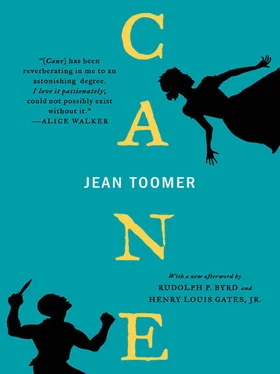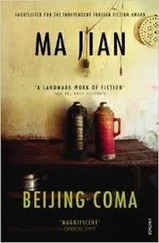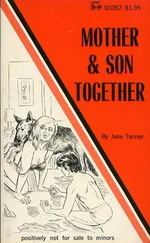Leonard Harris and Charles Molesworth suggest that it was within the charmed circle of the Saturday Nighters that Toomer came to know Locke, with whom he had a cordial relationship in the years preceding the publication of Cane. In search of a community of writers in his native Washington he found, to a certain extent, such a community among those black writers and artists who attended the Saturday Nighters. According to Kerman and Eldridge, Toomer shared some of his early writing with Johnson. 86“Toomer was almost certainly the only writer in America,” as Harris and Molesworth assert, with the possible exception of the Jamaican immigrant Claude McKay, who flowed easily between Harlem and socialist literary circles downtown, “who visited literary groups as diverse as Johnson’s Saturday Nighters and the Seven Arts circle around Lewis Mumford, Sherwood Anderson, and Waldo Frank.” 87They are also correct in asserting that Toomer never conceived of himself as a bridge between these two discrete literary communities, both of which were committed to the project of American modernism. 88Rather, he took what was useful from each in his efforts to create a work that expressed his own particular artistic and philosophical vision. Keenly aware of what he regarded as the differences and limitations of both artistic communities, Toomer, however, felt a much greater degree of affinity for those writers and artists whom he came to know through Ridge, chief among them Waldo Frank.
Toomer’s attendance at Johnson’s Saturday Nighters provided him with some preparation for the unmixable mix of banter, bravado, earnestness, narcissism, and posturing he would encounter at Ridge’s “literary party” in Greenwich Village. In the main, he was not impressed by his first encounter with the literati of the Lost Generation which, on this particular occasion, was represented by Edwin Arlington Robinson, Witter Bynner, and Scofield Thayer, among others. Hungry to learn about this new world, Toomer felt “that there was far too much buzz about publishers, magazines, reviews, personalities; not enough talk of life and experience.” 89However, one “man stood out…. He had a fine animated face and a pair of lively active eyes…. I didn’t know his name, but I marked him.” 90The man in question was none other than Waldo Frank, the celebrated author of Our America, a meditation on race, ethnicity, and spirituality in American culture. A few days after the party, Toomer encountered Frank while walking through Central Park. Both men stopped and introduced themselves, and thus began a friendship in letters that for Toomer would be instrumental in the publication of Cane. At this stage in his apprenticeship as a writer, Toomer had written the poem “The First Americans,” the forerunner of his epic, “The Blue Meridian,” and the short stories “Withered Skin of Berries” and “Bona and Paul.” He shared his work with Frank, and was heartened by the encouragement he received from the older, established writer.
Shortly after this propitious meeting with Frank, Toomer returned to Washington, having spent his inheritance of $600. This was the end of the summer of 1920. Needless to say, Pinchback raged against Toomer’s return. “Grandfather put up a fight but I beat him,” Toomer remembers rather defiantly. 91Possessing a sense of purpose and direction for the first time in five years, Toomer wrote, “I was wholly convinced that I had found my true direction in life, and no one was going to stop me. On the contrary, everyone, including grandfather, was going to help me…. I had matured considerably. And, I was filled with a purpose that was to keep me working for the next three years. But what terrible years they were!” 92
And why would Toomer characterize the three years preceding the publication of Cane as “terrible”? The answer lies in part in the fact that during this period of his apprenticeship he lived in greatly reduced circumstances with his aging grandparents. “I was in the house with two old people whom,” as Toomer wrote in his autobiography, “despite the continual struggle with grandfather — he never gave up completely; he was a game fighting cock to the end — I loved. And they were dying. No, they weren’t dying. Grandfather gradually declined — a tragic sight — and, one day he broke…. I had to take over whatever of his affairs needed attention. And I ran the house, even cooking meals and sweeping and cleaning. In a way, it was a good thing for them that I had returned.” 93Of his grandmother, Nina Emily Hethorn Pinchback, Toomer remembered her as strong, vivid, and humorous even as she declined amid circumstances of near poverty: “Yet she bore up. Not a whimper from her. She was glad to have me there…She would say every now and again that she only lived for me. But this was the miracle — as her body failed her, her spirit began taking on a more and more vivid life. Her mind became sharper — and also her tongue. She showed a vein of humor and satire that was the delight and amazement of all who came in.” 94
This was not the first time in his life when Toomer had responsibility for the care of his grandmother. In 1909 when Pinchback held an appointment in New York at the Department of Internal Revenue, Toomer and his grandmother lived with his Uncle Walter and his family. Owing to Pinchback’s absence and the indifference of his uncle and wife, his grandmother, as he wrote, “becomes my responsibility. I look after her, and often, instead of going out at nights to play…I have to stay indoors and keep her company.” 95While he admired and loved his grandfather, Toomer also loved his grandmother. He understood her function and value in the household through its rise and decline: “She stood without flinching at Pinchback’s side all through his stormy and dangerous political career. She saw the rise of the family and, outliving her husband and all but one of her children, she endured its rather tragic fall.” Toomer also acknowledged the important fact of his grandmother’s support, when everyone else, in particular his grandfather, had dismissed him as a ne’er-do-well: “She was the one person in my home who sustained her faith in me after I turned black sheep, who supported me through thick and thin….” 96Nina Emily Hethorn Pinchback lived to see the publication of Cane, which bears the dedication: “To my grandmother…” She died five years later.
Along with accepting the multiplying responsibilities of caring for his aging grandparents, Toomer also became the caretaker of his beloved Uncle Bismarck: “Bismarck got very sick. I took over the running of his house also, and each day I went over and massaged him. He was over a month recovering. This took it out of me.” 97Plainly, the responsibility of caring for aging relatives sapped Toomer’s energy and strength, yet it also, paradoxically, introduced a certain discipline and structure that advanced his goal of becoming a writer. “My days were divided between attention to the house and my grandparents,” as Toomer wrote of this period, “and my own work. At all possible times I was either writing or reading.” 98
Toomer inevitably came face to face with his own limitations and deficiencies as a writer. There was the dream, and there was the reality. To realize the potentialities of the one clear affirmation of his life at this juncture, he had to confront and overcome the division between his own aspirations and his abilities: “But what difficulties I had! I had in me so much experience so twisted up that not a thing would come out until by sheer force I had dragged it forth. Only now and again did I experience spontaneous writing. Most of it was will and sweat. And nothing satisfied me…. I wrote and wrote and put each thing aside, regarding it as simply one of the exercises of my apprenticeship. Often I would be depressed and almost despaired over the written thing.” 99These periods of despair were balanced by successes, few and far between though they were at the time. And these successes bolstered his confidence and renewed his faith in his capacity to become a writer: “But, on the other hand, I became more and more convinced that I had the real stuff in me. And slowly but surely I began getting the ‘feeling’ of my medium, a sense of form, of words, of sentences, rhythms, cadences, and rhythmic patterns. And then, after several years work, suddenly, it was as if a door opened and I knew without doubt that I was inside, I knew literature. And what was my joy! But many things happened before that time came!” 100
Читать дальше











